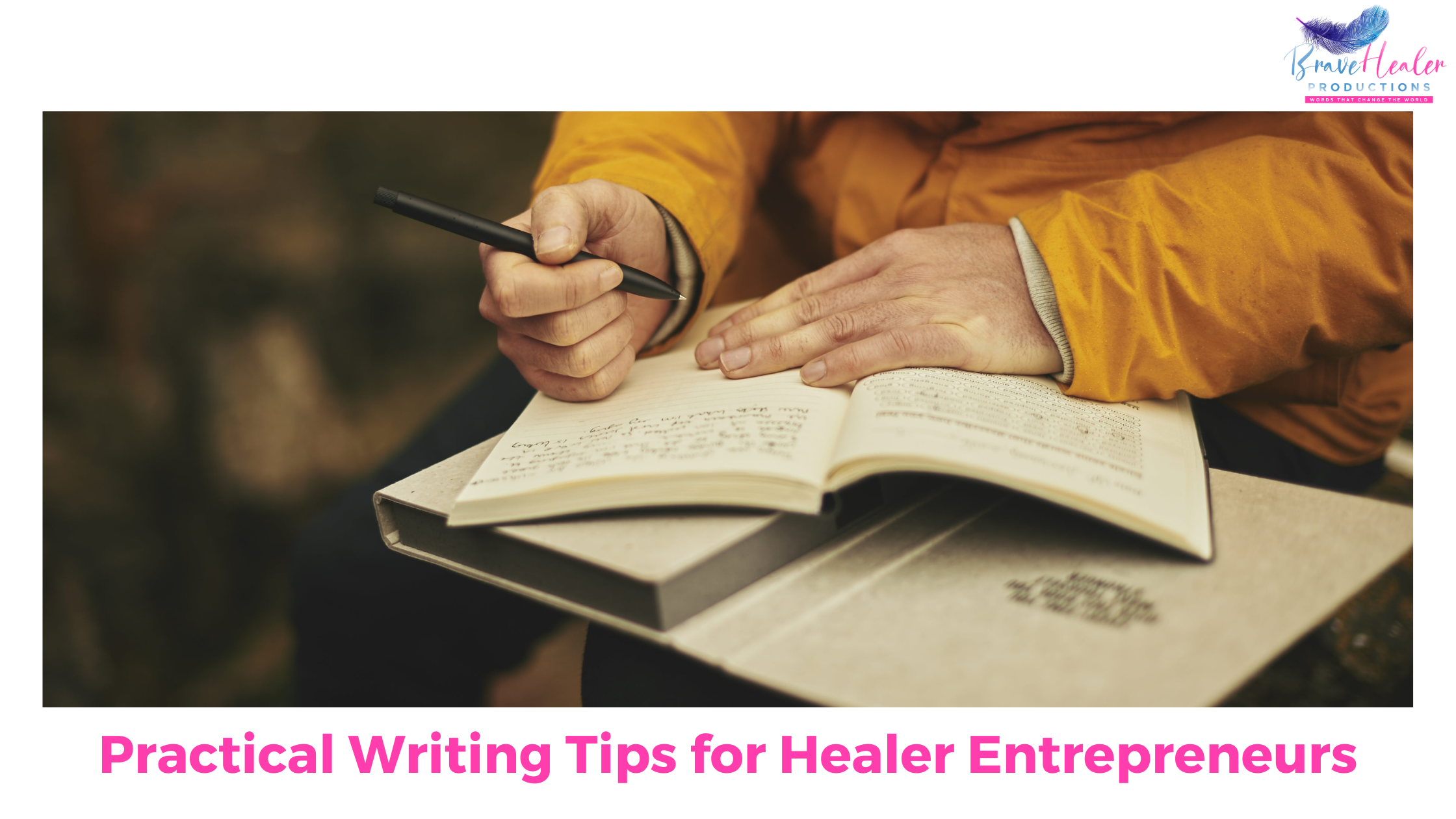I’ve coached over 500 authors about how to become a better writer and want you to know the most important thing about the tips to becoming a better writer that you’ll read out there: They aren’t all great, and they aren’t all fit for you, my brave healers!
I remember looking at my typed-up manuscript, the first 30 pages of a book I was working on, before submitting it to my book writing coach, Laura Munson.
Omg, she’s going to think I’m a horrible writer, I thought.
I patiently awaited my turn to enter her private office and review what I’d sent. I wanted to be detached from the feedback so badly, but I was a mess. That life-long perfectionistic tendency was up close to the surface of my heart, making it difficult to look at all the red marks Laura had made on my pages.
I arrived at that retreat thinking I was an okay writer. I returned from that retreat knowing I was a good writer.
Fast forward to today. I love getting feedback that helps me be a better writer. I have more of a learner’s mindset now, more than I did when I attended that first book-writing retreat. I crave learning new ways to write that turn people on and keep them engrossed in my material. It’s thanks to Laura, and a blogger named Jon Morrow, that I write the way I do and I’ll love learning to be a better writer forever.
I’m addicted to things like how to write better sentences and how to write better stories. I created a writer’s circle to gather with my writing-loving friends and stay accountable for my addiction.
Today I wanted to share with you what I believe have been the ten biggest practical tips for me (and hopefully for you, too) to becoming a better writer:
1. Know who you’re writing for. This means doing the ideal reader work up front before you start writing and knowing their biggest problems and deepest desires. Please enjoy my masterclass workbook on mastering your ideal client. Find it HERE Writers Resources.
2. Know how you want them to feel, and conjure that feeling up before you sit to write. This means putting some intention and energy into the process and being aware and mindful before you write. It means being in your body and paying attention to everything. Do you know how you want the reader to feel? Are you feeling it as you write?
3. Write like you talk and at a fifth-grade level. This means using your contractions and avoiding fancy words we’ll have to stop reading to look up in the dictionary. If you lose your reader with language above their level, you lose. But also, conversational writing is so much more fun to read!
4. Use dialogue (both outer and inner) to show the reader a scene. This means that instead of telling the reader about a conversation, you actually write out the conversation with quotation marks. Or you can share inner dialogue (the thoughts in your head) by typing with italics. Sharing the scene in dialogue will make your writing come alive, and your reader not be able to put it down!
5. Describe emotion by describing body language. This means you’re showing the reader an emotion without telling them what it is. Notice what the body does when someone is angry or happy. Describe that to the reader.
6. Get the reader into their senses. This means you’re helping me smell, taste, feel, hear, and see everything.
7. Use active language. This means that you’re using active verbs instead of passive ones. It’s worth researching this writing tip and getting better at it. It will take some practice.
8. Avoid capitalizing spiritual or healer words that shouldn’t be. This means you’re not stopping the reader from reading by forcing them to think: should that word be capped?
9. Avoid unnecessary words. This means you’re cleaning up your writing and only using as many words as necessary to convey a point to your reader. Writing that is clear, concise, and to the point is easy reading.
10. Don’t be afraid to share your personal stories. This means the reader will get to know, love, and trust you because you’re being vulnerable, authentic, and passionate about what you’re sharing. It’s the storytelling skills that make you an incredible writer.
11. BONUS TIP: The best writers read a lot. This means you’re paying attention to your favorite writers and what they are doing and learning new ideas.
There’s so much to learn in the world of writing. The most important thing is loving the craft and the journey of becoming a better writer. To finish off, I’d love to share a few of my all-time favorite books about writing with you:
On Writing by Stephen King
Naked, Drunk, and Writing, by Adair Lara
Writing Down the Bones, by Natalie Goldberg
Bird by Bird, by Anne Lamott
Writing as a Path to Awakening, by Albert Flynn DeSilver
There are so many more. What are your favorites? Drop them in the comments! And may you enjoy every word on the journey!








